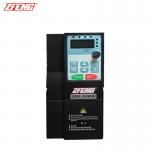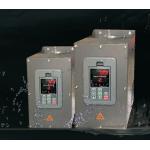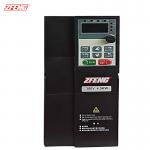The frequency converter has multiple protection functions such as
overcurrent, overvoltage, overload, and overheating, which can
monitor the operating status of the motor in real time and cut off
the power supply in a timely manner in case of abnormal situations,
protecting the safety of equipment and personnel. Due to the
ability of frequency converters to extend equipment lifespan and
reduce failure rates, they can lower maintenance costs for
businesses. At the same time, the intelligent function of the
frequency converter can also achieve remote monitoring and fault
diagnosis, further improving maintenance efficiency.
The frequency converter can achieve stepless speed regulation of
the motor, meeting the requirements of different production
processes for motor speed. For example, in industries such as
textiles and printing, precise speed regulation can improve product
quality and production efficiency. The frequency converter has fast
dynamic response capability and can quickly adjust the motor speed
to adapt to changes in the production process, improving the
flexibility and efficiency of the production line.
Significant energy-saving effect
Accurate load matching: The frequency converter can provide the
appropriate power supply voltage according to the actual needs of
the motor, avoiding the energy waste phenomenon of "big horse
pulling small car". For example, in applications with large load
changes such as fans and pumps, frequency converters can adjust the
motor speed in real time to ensure that the motor always operates
in the high-efficiency zone.
Soft start function: The frequency converter achieves soft start of
the motor, reducing the current surge during motor start-up and
lowering energy consumption. Compared to direct starting, soft
starting can reduce the starting current to about 1.5 times the
rated current, reducing reactive power losses in the power grid.
Improving power factor: Frequency converters can enhance the power
factor of motors, reduce reactive power losses in the power grid,
and improve the quality of power supply in the grid. After the
power factor is improved, the electricity expenses of the
enterprise will also decrease accordingly.








